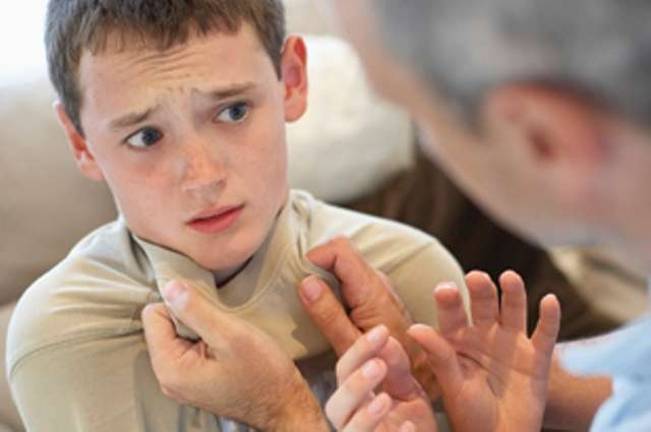Bad report cards linked to child abuse

Did you know that reported cases of child abuse increase immediately after report cards are released?
This is a time of increased stress for both the parent and the child. Parents worry about their child's future, their focus, and their parenting skills. But their response may undermine their child's confidence and drive.
Although corporal punishment is legal in every state and commonly practiced, pediatricians say it is also a source of toxic stress and a leading risk factor for physical abuse. Corporal punishment may include pain but is not supposed to result in injury. Corporal punishment resulting in injury is physical abuse.
Researchers find a connectionStrong anecdotal evidence from physicians and other professionals working in child protection suggest that physical abuse for school-aged children increases after report cards are issued. Researchers set out to examine this association by reviewing calls to a state child abuse hotline and school report card release dates affecting children ages 5 to 11 across a single academic year in Florida.
Across 64 counties, 1,943 verified cases of physical abuse were reported in the study period from October 2017 through May 2018.
The study found that report cards released from Monday through Thursday were not associated with increased rates of child physical abuse on the same day or the day after the release. But there was nearly a fourfold increase on Saturdays after a Friday release, researchers found.
Researchers Melissa A. Bright, Ph.D, Sarah D. Lynne, Ph.D, and Katherine E. Masyn, Ph.D, say their findings "offer an actionable, policy-level strategy for school districts that may reduce incidents of child physical abuse linked to report cards."
The results were published in JAMA Pediatrics in December.
The best advice for parents? Don't react with disappointment or anger. A poor grade is often a red flag for a problem area, not a measure of a parent's worth, or their child's. Here are constructive ways to respond:
Tips for parents Calmly discuss, but don't lecture. Try asking, "What do you think happened, and does this reflect the work you put into it?" Let your child tell you about his/her grades then ask how you can help them do better.
Praise your child. Find at least one good thing about the report card — high marks in a specific class, good attendance, or positive conduct.
Focus on proficiency. Some kids are C students, yet excel at music or athletics. Nurture their gifts but discuss expectations. Focus on your child's proficiency in academic and socialemotional learning for their grade level.
Meet with the teacher. Learn about the teaching style, rules, ways you can help and access to tutoring. If you think a grade is unfair, call the teacher or counselor and advocate for your child.
Supervise homework and ask about assignments. Remember, there's a big difference between "supervising" and "doing."
Tips for students Think positively. You are a special person! Be proud of your strengths and continue to work on areas that need a little more focus.
Make a plan. How can I improve areas that I think are weak?
Ask for help. We all need it at times. Your teachers, students and parents are allies.
Try your best. That’s the most important ingredient to success. Build study time into your daily routine, along with snacks, chores and TV time.
Sources <URL destination="https://www.familytreemd.org/files/371_Report%20Card%20Time.pdf">The Family Tree: "It's Report Card Time": familytreemd.org
</URL> JAMA Pediatrics: jamanetwork.com